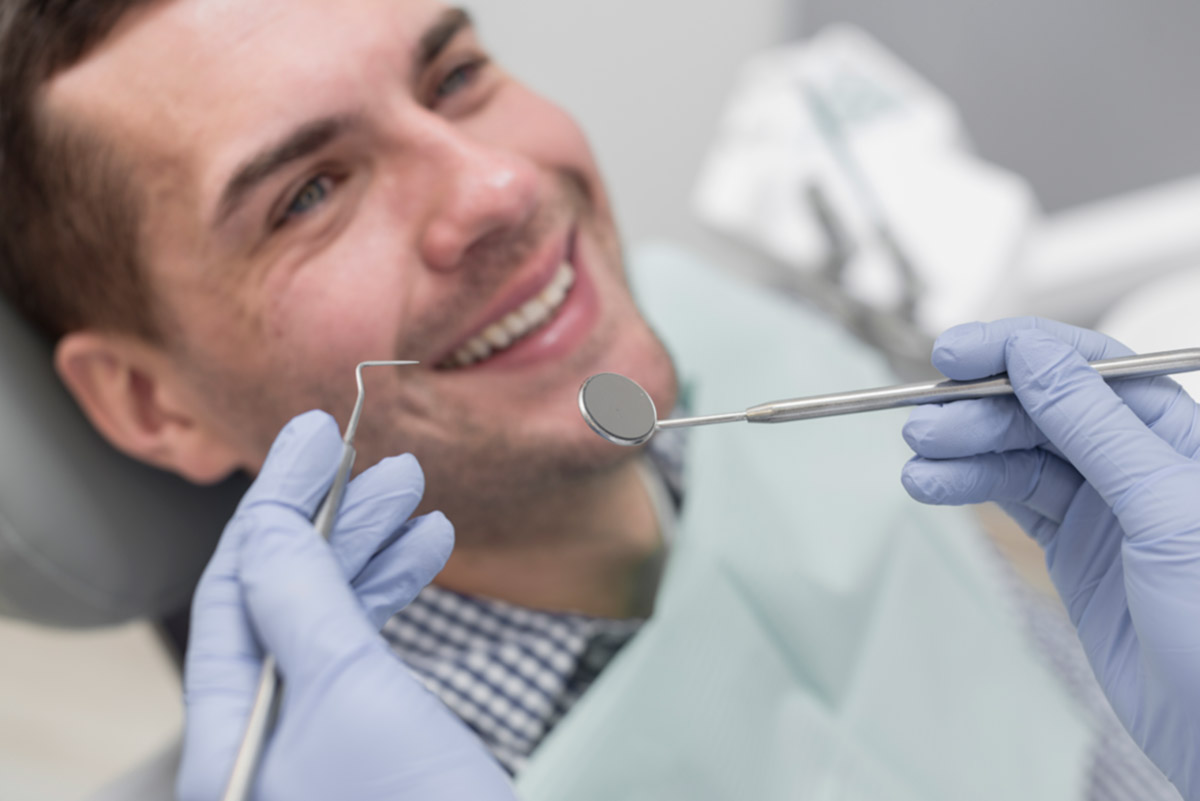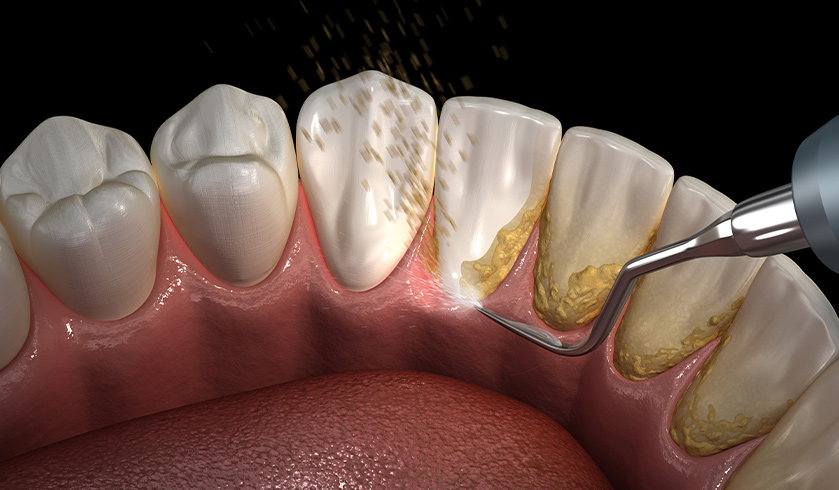When is gum treatment needed?
When it comes to gum treatment, most methods are preventive, and the correct approach will always be having impeccable oral hygiene. Nonetheless, factors outside of our control may affect the health of our gums, and treatment can still be necessary.
If you have one or more of the below symptoms, seek an appointment with a dentist:
- Red, swollen gums
- Bleeding gums
- Receding gums (more of your teeth’s roots become visible)
- Foul mouth odour
- Gum ulcers
- Sensitivity to hot and cold drinks and food
- Visible dental calculus.

Gum treatment for swollen gums
Swelling in the gums is a sign of gum infection, typically caused by the bacteria in our mouth. Due to insufficient oral hygiene or biological predisposition, the bacteria can enter the area between the gums and teeth. When this happens, only regular brushing and mouthwash can’t help – you will need an appointment with a dentist.
If left untreated, gum infections can lead to gum recession and even the loss of healthy teeth. However, gum infections can be cured and controlled when caught in the early stages.
Deep hygiene will help with calculus removal and allow the gums to heal.
Treatment for bleeding gums
Bleeding gums are yet another symptom of gum infection, which should not be dismissed. It can be caused either by poor oral hygiene or by excessive brushing. In either case, if you have bleeding gums, you should book a dental appointment and have your gums assessed.
Regular dental hygiene sessions will be recommended (every 3-4 months) until the gums stop bleeding and their health is restored.
To prevent bleeding of the gums in the future, you will be advised to visit a dental hygienist every six months.

Gum treatment for receding gums
If you believe you are suffering from receding gums, visit a dentist immediately to receive a dental assessment. You may require a consultation with a periodontist (gums specialist) to assign the appropriate treatment.
Receding gums are one of the most common reasons for teeth loss, especially for people over the age of 30. Although gum recession cannot be reverted (which is why it is vital to have impeccable oral hygiene throughout your life), the process can be stopped and the gum health restored to normal.
Treatment for bad breath
Although often caused by caries, bad breath can also signify a developing or developed gum infection. A rather early symptom, the foul mouth odour, can alert you that your gums need additional care and prevent the infection from worsening.
Depending on the state of the infection, you may be able to recover your gum health with a couple of deep hygiene sessions, which will help remove plaque and dental calculus (also known as tartar).
To completely cure the gum infection, you will need to improve your oral hygiene and brush at least twice a day for a few minutes. Flossing or using interdental brushes should also become part of your routine.

Gum treatment for mouth ulcers
Seemingly innocent, mouth ulcers (or gum ulcers) can cause severe discomfort. In some cases, they can be a sign of celiac disease, HIV (AIDs), diabetes, Behcet’s disease, or a damaged immune system.
If you realise that you often suffer from mouth ulcers, book an appointment with one of our experienced dentists for an assessment. We will be able to help you determine the reason and appropriate treatment and help you with instant pain relief medication if needed.
Tartar (calculus) removal
When plaque around the teeth hardens over time, it builds a layer of tartar (calculus) close to the gums. The build-up of tartar starts slowly pushing the gums down, causing bleeding, infections, and receding. If this process happens, the receded gums cannot be restored.
To prevent this from happening, you should visit a hygienist every 6 months, or if recommended by your dentist – every 3 to 6 months. Regular tartar removal will help retain the health of your gums intact and guarantee that you keep your natural teeth for longer.
Click here to see the type of hygiene treatments we offer and book your appointment.

How to keep your gums healthy?
There is a range of gum treatments provided by hygienists, dentists, and periodontists, which can help you with a gum infection or another unpleasant condition. The best gum treatment, however, remains prevention. Here is how you can keep your gums healthy:
Brilliant oral hygiene
Brush your teeth at least twice a day and floss daily. If you have more prominent gaps between your teeth, don’t forget to use interdental brushes. Brushing your tongue will also help with removing bacteria from your mouth.
Bite carefully
Hard foods or other objects can damage your gums and create a nurturing environment for bacteria, which can cause gum infection. If you accidentally harm your gums, wash your mouth with non-alcoholic mouthwash and allow it to heal before eating or drinking again.
Regular check-ups
Regular dental check-ups and hygiene appointments will help you avoid any complex dental treatments by addressing issues in the early stages, saving you both time and finances.
